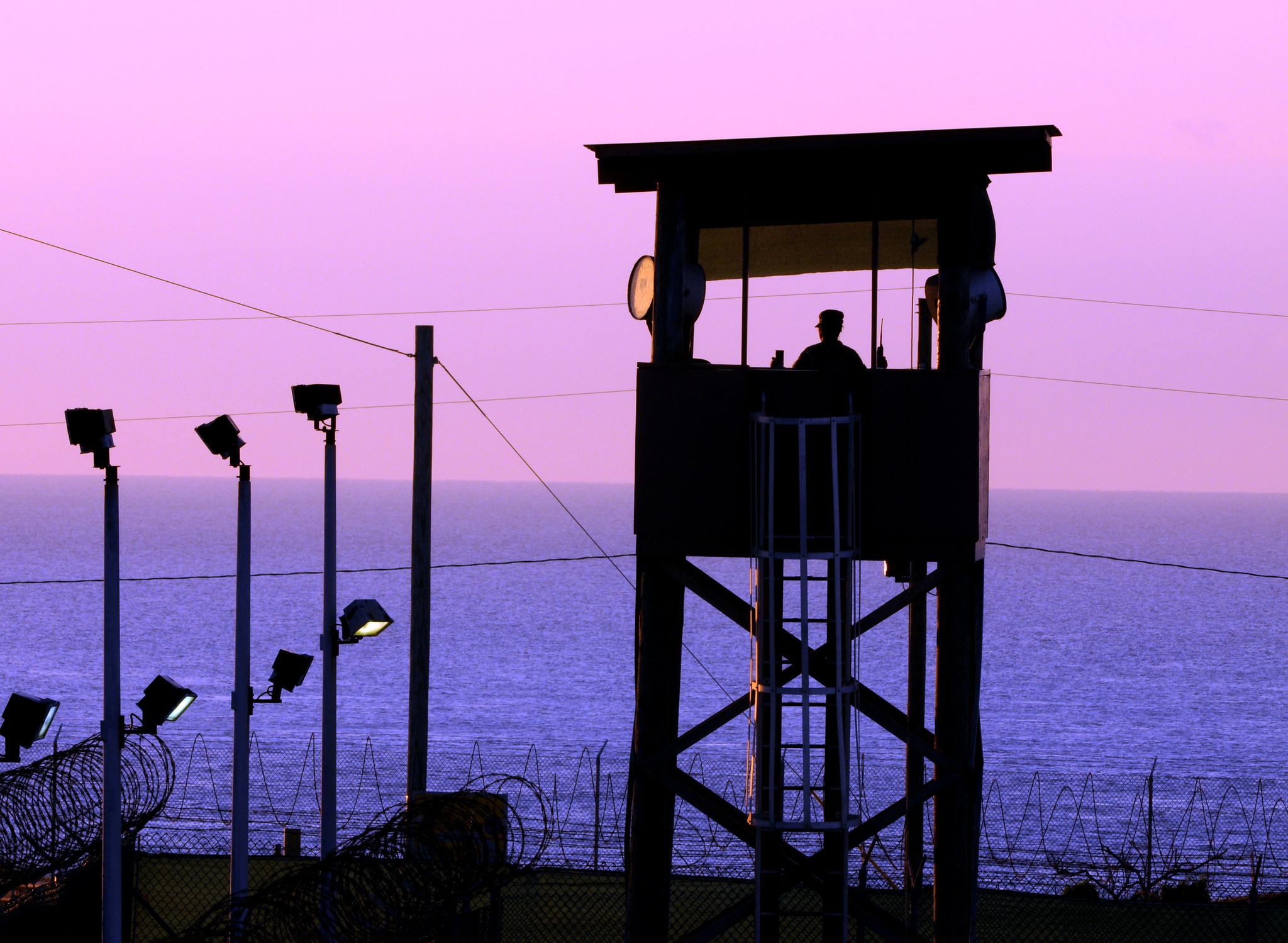Remarks by Mark Martins on Day #3 of the Al-Nashiri Motions Hearing
The Chief Prosecutor's full statement follows below:
CHIEF PROSECUTOR MARK MARTINS REMARKS AT GUANTANAMO BAY 19 JULY 2012
Published by The Lawfare Institute
in Cooperation With

The Chief Prosecutor's full statement follows below:
CHIEF PROSECUTOR MARK MARTINS REMARKS AT GUANTANAMO BAY 19 JULY 2012
Good afternoon. Today, the Military Commission convened to try the charges against Abd Al-Rahim Hussayn Muhammad al Nashiri held its sixth day of sessions without panel members since Mr. al Nashiri was arraigned on November 9, 2011. The Military Commission addressed the last of a series of motions raised by the defense and the prosecution. To summarize:I will not comment on specifics of the case of Mr. al Nashiri other than to note the results announced by the judge. I would, however, like to expand upon Tuesday’s discussion of public proceedings. Yesterday morning, the Military Commission held a closed proceeding pursuant to Military Commission Rule of Evidence 505(h), which permits an in camera presentation concerning the use of classified information. As the Commission stated on the record today, the 505(h) proceeding was held to determine whether there should be a closed hearing pursuant to Rule for Military Commissions 806 and to minimize the amount of closure. The Commission determined that closure was not necessary at this time. The classified motions will be considered at a future motions session. Significantly, the same closed proceeding rules are followed in federal courts. Section 6 of the Classified Information Procedures Act (CIPA), which is analogous to Military Commissions Rule of Evidence 505(h), provides specific authority for federal courts to hold (1) an in-camera discussion (2) placed on the record, where the record is sealed but available for appellate review. In practice, in federal court, such proceedings can be held outside the presence of the accused and are closed to the public, because the proceedings often involve the discussion of classified information that the defendant and the public are not authorized to hear. These in camera proceedings take place in cases involving classified information, including for example in United States v. Rosen and Weissman (E.D.V.A. July 19, 2006). There, the federal court held a CIPA Section 6 proceeding under seal and in camera, and the defendants “were present for [the] beginning of [the] hearing but later excused.” And in United States v. Smith, 780 F.2d 1102 (4th Cir. 1985), the trial court conducted a closed proceeding pursuant to CIPA Section 6 to determine the use, relevance, and admissibility of the classified information that the defense sought to be introduced. Although rare and exceptional, closure to protect classified sources and methods is fully consistent with our core values and the rule of law. Embarrassment is not a legal basis for closure, nor is the fact that a law may have been broken. Proceedings may be closed only if a military judge makes a specific finding that such closure is necessary and finds an overriding reason, for example, in the interests of national security to protect classified information. If there is a closed session, the non-disclosure must be narrowly-tailored, employing measures short of complete closure whenever possible to protect the information while allowing public access to sufficient information to understand the proceedings and the basis for non-disclosure. And the reason for closure must be preserved on the record by the military judge. Meanwhile, as closure must be rare and narrowly tailored to achieve an overriding interest, normal proceedings must be public. This is achieved through the opportunity for the media and members of the public to observe and via as-prompt-as-possible posting of transcripts and pleadings. And now, I’ll take questions.
- First, yesterday two classified defense motions to compel discovery of information allegedly in the possession of the United States and an unclassified defense notice communicating its intent to disclose classified information. (Appellate Exhibits 88, 89, and 90.) The Commission held a proceeding to determine if the proceedings should be closed, and determined that closure was not required at this time. The Commission will consider the defense motions at a future motions session.
- Second, today a defense motion to withdraw the charges based upon an alleged improper referral made by the Convening Authority. (Appellate Exhibit 86.) The military judge took this motion under advisement.
- Third, a defense motion to dismiss the charges based upon an alleged violation of the Appointments Clause of the United States Constitution. (Appellate Exhibit 87.) The military judge took this motion under advisement.
- Fourth, a defense motion requesting that the proceedings of this trial be made available to media outlets for broadcast, beyond the closed-circuit television transmission currently available and authorized for federal and military criminal trial courts. (Appellate Exhibit 81.) The military judge took this motion under advisement.
- Fifth, a defense motion to compel translation of discovery into Arabic. (Appellate Exhibit 97.) The military judge took this motion under advisement.
* * * * * * *
Once again, I would like to recognize the professionalism and support of the Sailors, Soldiers, Marines, Airmen, and Coastguardsmen of Joint Task Force Guantanamo. And I also acknowledge the desire for justice under law felt by so many who are observing these proceedings, including the survivors and victim family members.
Wells C. Bennett was Managing Editor of Lawfare and a Fellow in National Security Law at the Brookings Institution. Before coming to Brookings, he was an Associate at Arnold & Porter LLP.


-final.png?sfvrsn=b70826ae_3)

